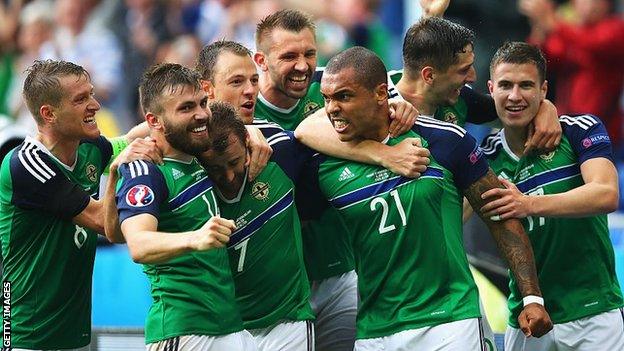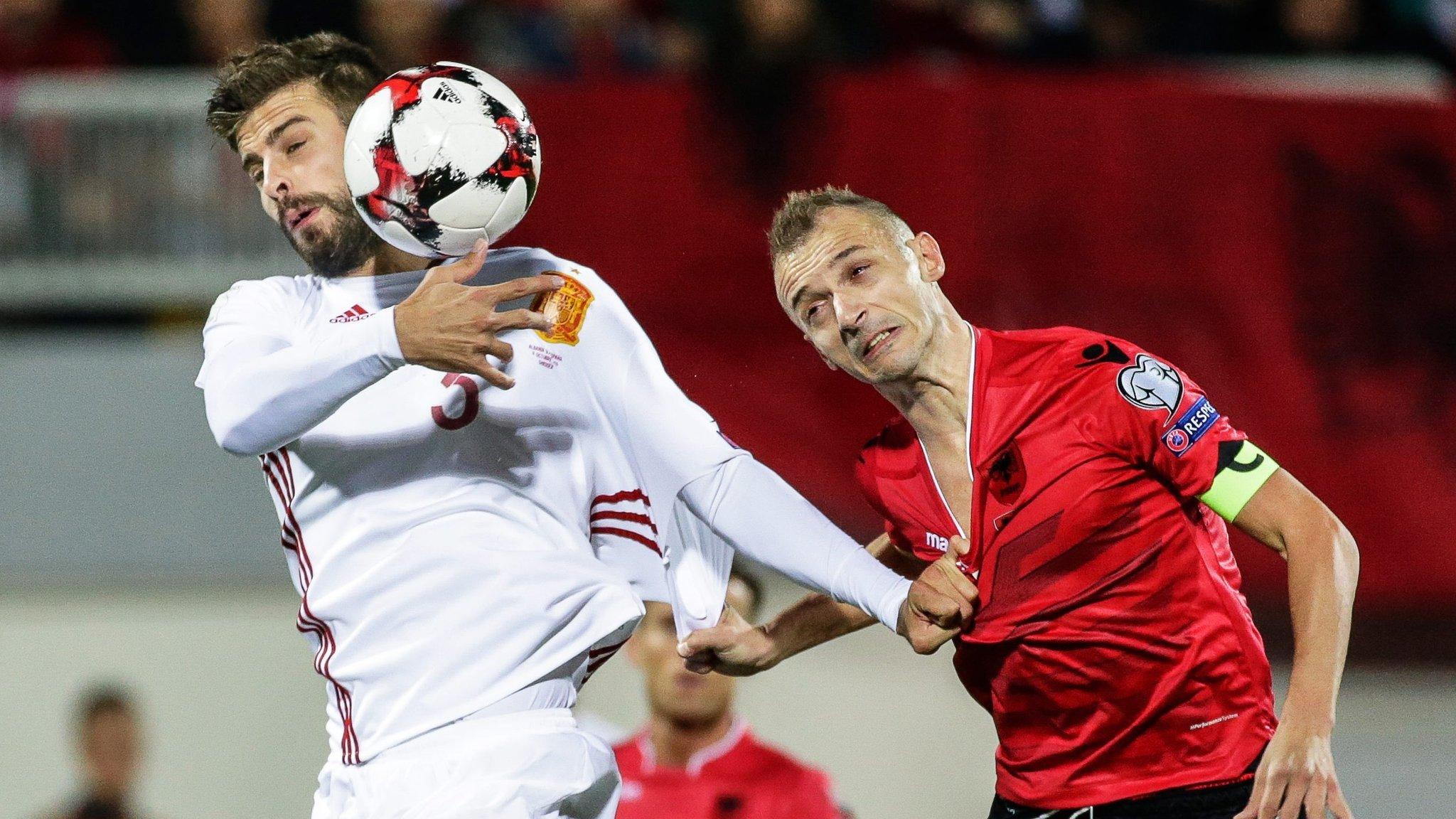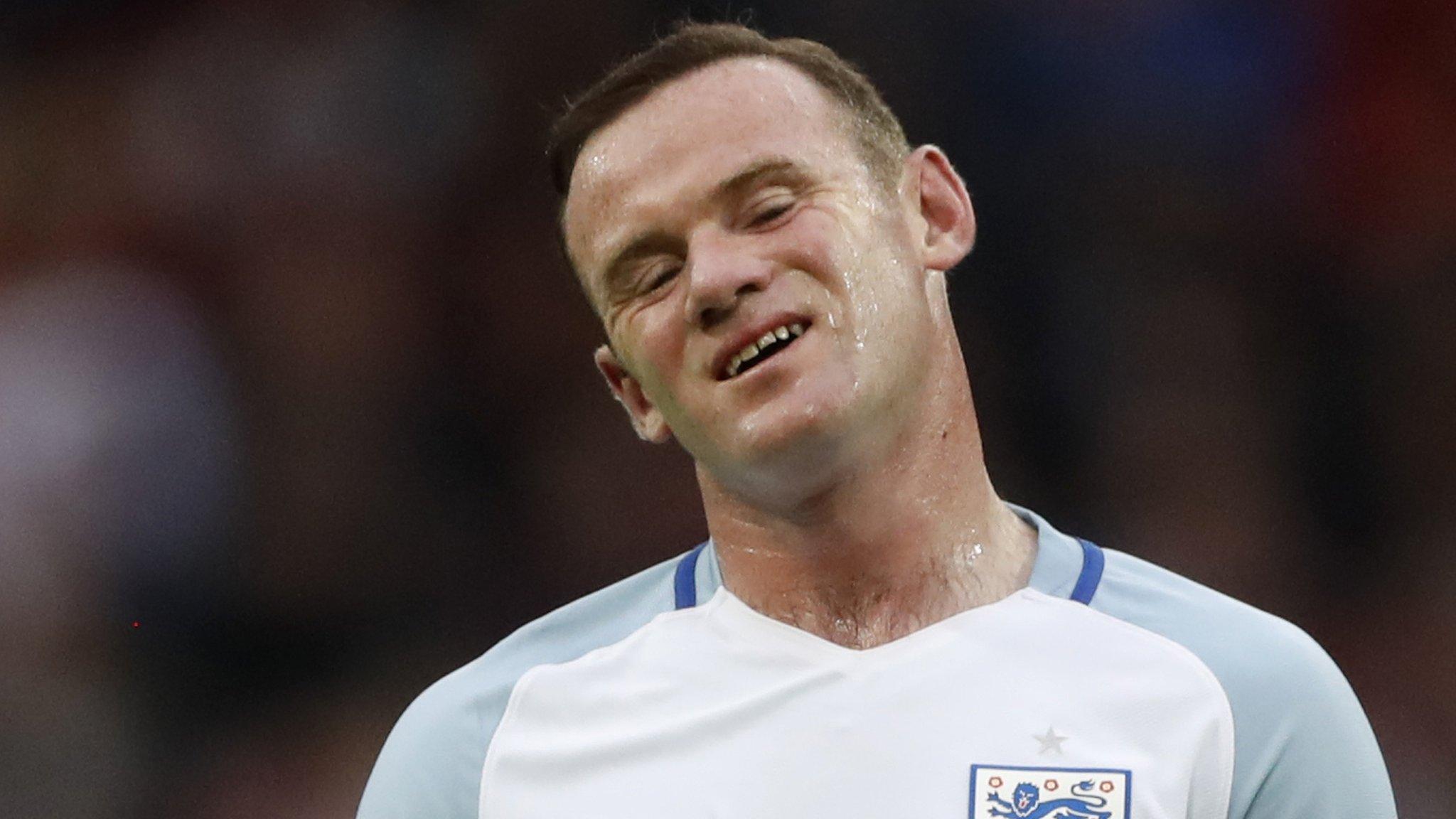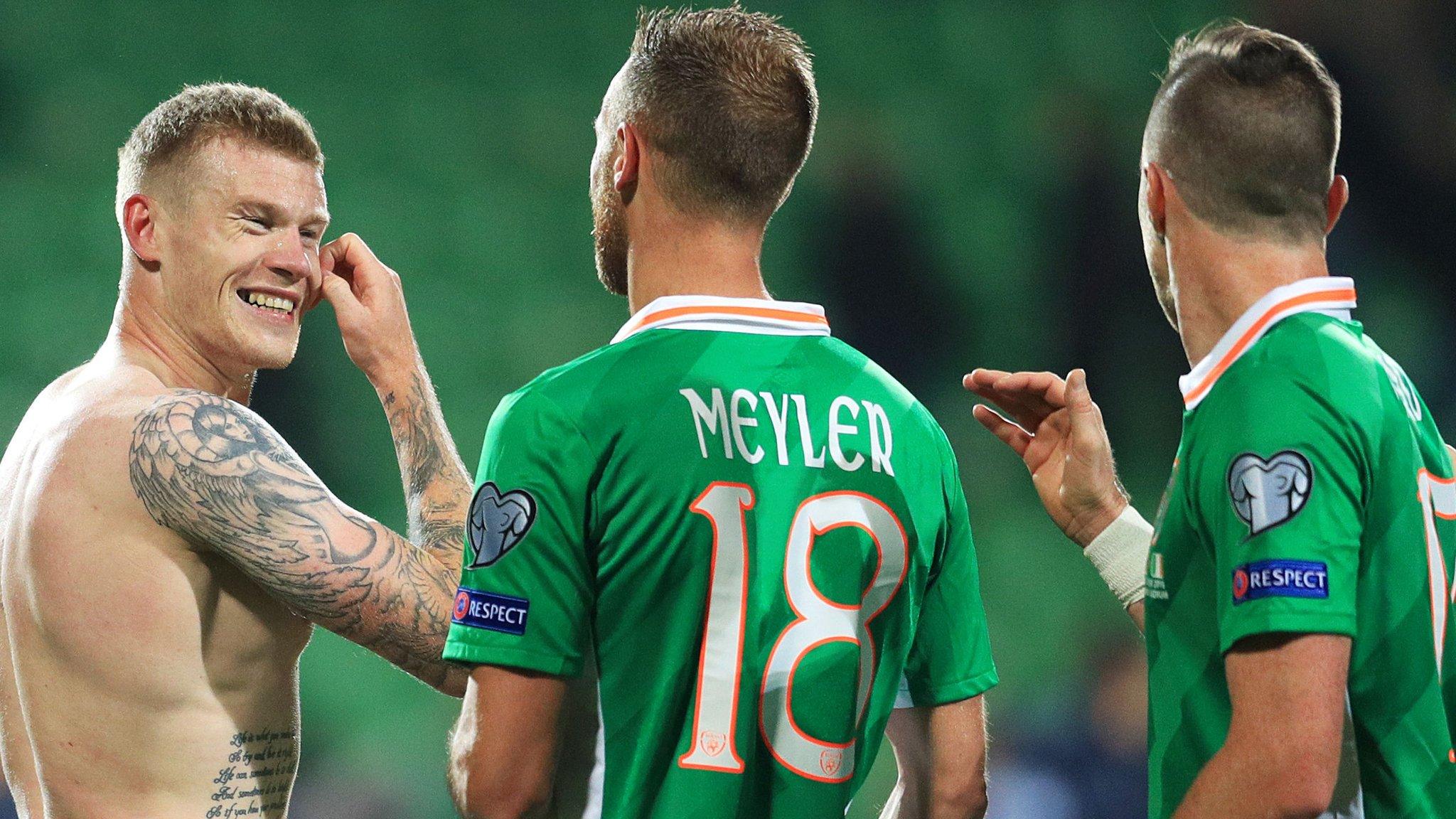World Cup and European Championship schedules help teams playing first, finds research
- Published

Northern Ireland beat Ukraine 2-0 to progress from Group C at Euro 2016
World Cup and European Championship tournaments have a built-in bias that means teams playing earlier in the group stages are more likely to progress, claim Swiss researchers.
Sides playing first in the first two rounds of games, as Northern Ireland did at Euro 2016, have a better chance of qualifying by 17 percentage points.
Economists analysed data from every World Cup and Euros from 1996 to 2014.
Playing all games simultaneously "would make tournaments fairer", they said.
The analysis, conducted by Alex Krumer and Michael Lechner from the University of St Gallen, also took team rankings, home advantage, seedings, rest hours and distance between matches into account.
Teams only play simultaneously in their final group matches at World Cup and European Championship finals in the current format.
"It is quite striking the design of a tournament can have such a big impact on the probability of success," said Dr Krumer.
"With so much relevance put on these contests, something should be done to ensure an equal chance for all those competing.
"All the games in the group stage should be played simultaneously. Suggested changes would add symmetry and ultimately would make such tournaments fairer."
The researchers also suggested challenges in overcoming the financial loss of TV revenues from playing matches simultaneously could be mitigated.
They conducted the same analysis on Greco-Roman and freestyle wrestling Olympic events at the 2000 and 20004 Games, and found the same trend.
A Fifa spokesperson said organising a tournament structure and schedule is "a complex process involving many parties", and that international fixtures, stadium availability and TV scheduling are among the other factors taken into account.
Subscribe to the BBC Sport newsletter, external to get our pick of news, features and video sent to your inbox.
- Published10 October 2016

- Published10 October 2016

- Published9 October 2016

- Published14 January 2018
- Published8 August 2017

- Published7 June 2019
